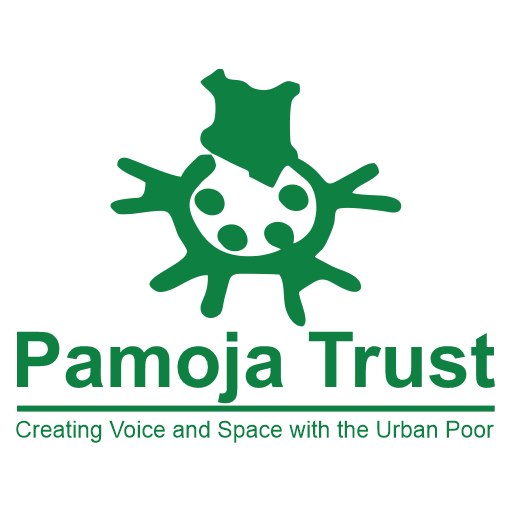Social Rights & Enterprise:
This programme is anchored in two pillars (1) State and Market Justice and (2) Asset Building, which aims at promoting the framing of inadequacies among the urban poor in the language of rights so as to make them claimable. It is pursuance of strategic Objective no1 Consolidate PT’s strategic partnerships to effectively and directly advocate for security of tenure and deliver adequate housing to its target areas and No. 2 Models for asset building and realizing social and economic human rights for and with urban poor developed. The programme problematizes and develops and influences replicability by the state of innovative models of delivering socio-economic rights in urban and peri-urban areas that are currently underserved, especially in relation to access to water, Housing, sanitation and waste management.
Most often urban informal settlements are considered as unserviceable. Moreover, access to mainstream water supply was often linked to possession of official land ownership documents, which one will never find in an area of informal settlement. The programme seeks to reverse such exclusions by entrenching interventions with the various duty bearers to ensure that the poor get access to social and economic rights. Its central focus is developing models that can link the gap between the theoretical articulation of the national international human rights instruments, national laws, standards and procedures with practices. Such interventions entails innovations that respond to pillar on State and market reforms. Because access to social economic rights more so housing comes along with enormous financial costs, the programme shall also develop and work with both communities and duty bearers in creating financial models and market logics that enable the poor’s access to social and economic rights such as housing, water and education.
To achieve this the programs deploys a wide range of strategies including;
1. Design, implement and monitor financing model to boost community savings and enable them to access housing and service. (Twaweza Fund).
2. Design, implement, and monitor innovative participatory planning and service delivery models such as Delegated Management Model for improved service delivery.
3. Advocate for access to secure tenure and service delivery from relevant duty bearers (county, National)
4. Build community structures that are able to leverage resources for housing and service delivery. 5. Building partnerships at county national and international level to promote access to housing and basic services

